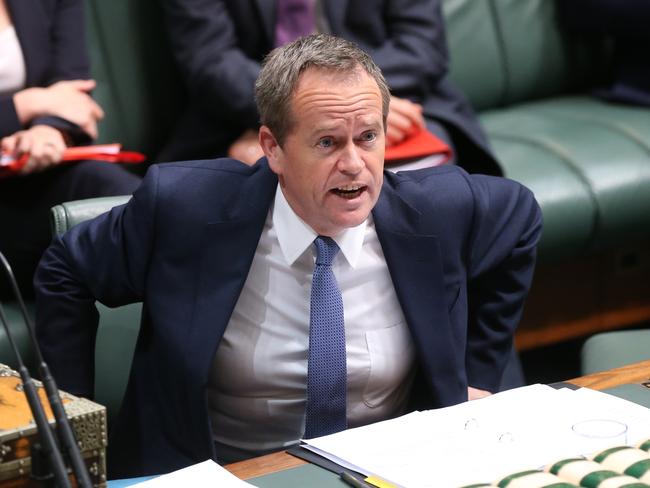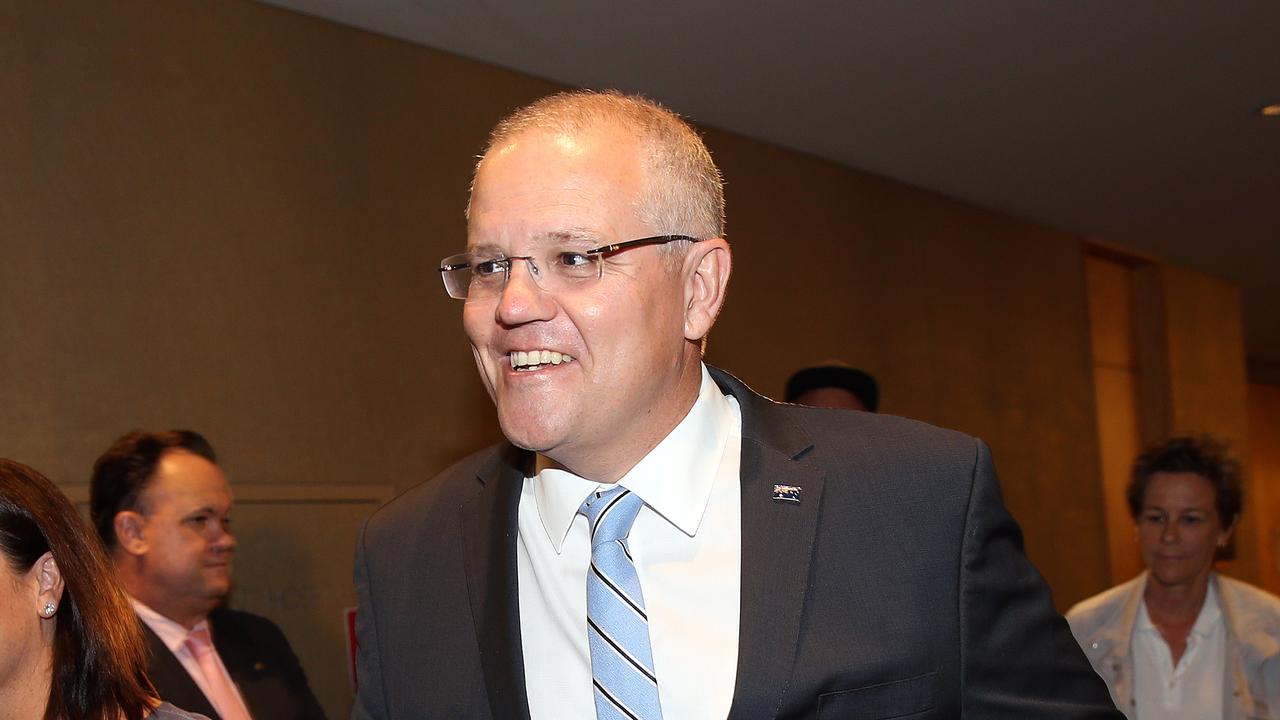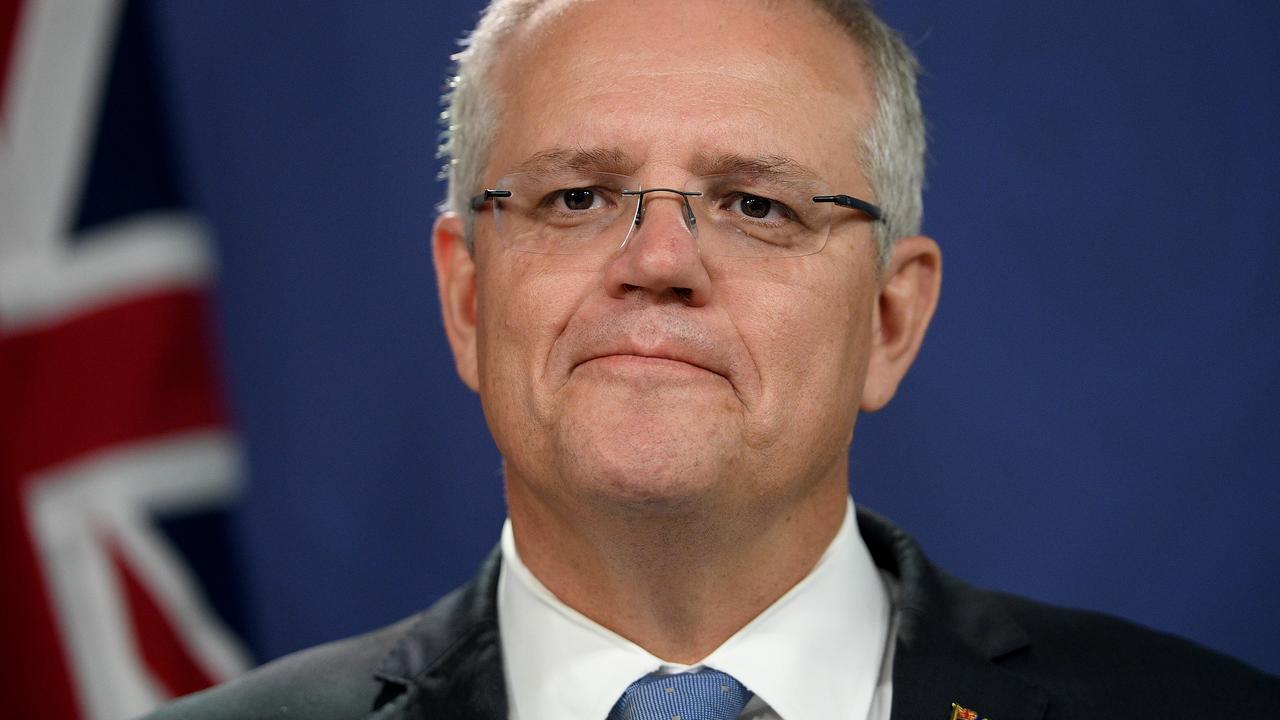
LABOR has adopted a do-nothing approach as the Coalition has dropped in the polls, the budget went over like a lead balloon and government’s agenda has been held to ransom in the Senate.
Doing nothing, as a political tactic, entails keeping a low profile if your opponents are in trouble and making things worse for themselves.
It has worked well for Labor in recent months as Bill Shorten overtook Tony Abbott as the preferred prime minister and Joe Hockey has come under pressure from all sides, including his own.
But doing nothing is a political tactic, not a political strategy.
As the first anniversary of the election approaches there is no doubt Labor is in a better tactical position, but if the ALP seriously wants to turn Tony Abbott into a “oncer” as Prime Minister, it has to face the fact there will be a day of reckoning next year, as Labor has to lay the foundation for an election campaign likely to take place in early 2016.
On that day of reckoning Labor will have to come up with a credible alternative economic plan — that is, one not compromised by the tactical decisions made during the do-nothing phase.
There is no doubt the Opposition Leader looks more confident and his public performance has improved.
Because of Clive Palmer’s self-serving disruptions in the Senate, Abbott has lacked authority.
Labor has seized the tactical opportunity and adopted an entirely negative approach to Abbott’s mandate, the Treasurer’s budget and parliamentary chaos.
Understandably piqued at Abbott’s successful negativity and constant pressure on the minority Gillard and Rudd governments, Labor feels justified in employing the same approach against the Coalition.
Labor’s campaign of anti-Liberal rhetoric, the personal demonisation of Abbott and defending the ALP’s traditional constituencies is also directed towards shoring up the party’s base.
For all the improvement in Labor’s standing, the ALP’s primary vote — particularly in Queensland where seats must be won back — remains stubbornly in the low 30s.
Labor cannot hope to win an election unless it attracts Coalition supporters, Greens voters or the large number of people supporting independents and protest groups such as the Palmer United Party, and, even more crucially, holds on to its base vote.
Senior Labor figures make no apology for concentrating on solidifying traditional ALP support and pursuing a do-nothing policy while the Abbott government is in strife.
Yet a combination of trying to appeal to Labor voters who supported a greenhouse gas emissions trading scheme and tactically embarrassing Abbott in the Senate over Palmer’s destructive and disruptive behaviour has put Labor into the strategic position where it will have to go to the next election with a carbon price mechanism, or at some stage Shorten will have to retreat from something he has staked out as a position of conviction regardless of political cost.
Since its election defeat last year, Labor (alongside the Greens) has held firm to the carbon tax and given no ground even in the new Senate, where the tax was finally repealed this week with the support of all the crossbench senators. It has adopted the same approach to the totally discredited minerals resource rent tax.
The carbon tax repeal gave Abbott his first obvious political victory in months: he was able to fulfil his main election promise and seize the opportunity Shorten provided by clinging to a carbon price.
Shorten’s declaration on a carbon price is going to make it difficult for Labor to walk away from the whole mishmash of a carbon price going into the next election, and opposition environment spokesman Mark Butler, charged with the strategic planning for climate change, clearly faces a tough task in crafting a policy.
On Thursday, after the carbon tax repeal, Butler said Shorten had called Labor’s policy and they would be going to the next election with a cap on carbon.
“In the past several weeks, we have also said that we would definitely have a policy that had a firm cap, a legal cap, on carbon pollution, underpinned by a market-based mechanism,’’ Butler said.
“Now, Bill has called this for what it is, an emissions trading scheme.
“Obviously, as I’ve said before, there are a number of details about such a policy that we would need to work through with stakeholders, environmental groups, business and others,” he said.
But while the carbon price will continue to be a difficult issue for Labor, the real day of reckoning will come when Labor has to nominate its savings to put the budget back on track to a surplus. All the populism in the world doesn’t change that inescapable fact.
What’s more, Abbott’s carbon tax victory gives the Coalition a chance to reset its political strategy, simplify its message, narrow its focus and start to stand up to Palmer on non-negotiable issues. Already there has been a sense of a shift of momentum in the House of Representatives and signs that the government is alert to the opportunity that has arisen.
What is not clear is where Labor intends to go, apart from hanging on to a discredited and unpopular Greens-Rudd-Gillard agenda and being populist on the budget — to the extent of disowning its own previous budget measures and rhetoric.
In the weeks after the September election some senior Labor MPs were critical of Abbott, as they had been of NSW Liberal leader Barry O’Farrell, for being too conservative in making promises going into an election when it was clear both were going to win thumping victories.
Abbott’s approach was too cautious on questions such as cuts to services and raising revenue, and locked him into making hard decisions in the budget that broke those overcautious pledges. Labor’s approach right now is the opposite.
Shorten has given the clear impression he is opposed to the entire “rotten” budget and will exploit the uncertainty in the Senate caused by the PUP to threaten all of Hockey’s measures and foment chaos, which will damage the government and weaken Abbott.
Shorten’s synopsis is simple: “We don’t believe our values become irrelevant merely because this government’s trying to bully us with unfair measures. What I would also say to (Hockey and Abbott) is this: if the Senate won’t buy your rotten, unfair budget, the problem may not be the Senate, it may not be the people of Australia, it may be the government who proposes this unfair budget.
“And we say to the government: don’t bully the Senate or threaten ordinary Australians with alternative measures; everyone knows this is a bad budget sinking fast — it is time for the government to go back and listen to the people …”
The “rotten budget” line is in accord with much of the public sentiment and some of the insecurity within the Coalition.
But Labor needs to readjust its strategy — unless it privately believes it cannot defeat Abbott at the next election and is in fact pursuing a two-term strategy founded on building the party’s base during this term and appealing to other voters with a more responsible line after the next election.
Even Wayne Swan, as Labor treasurer, wanted to make savings, reduce the deficit and return the budget to surplus. Indeed, the political overreach of promising a return to surplus within three years and failing was among the many political mistakes of the Gillard era.
Hockey’s budget contains much that needs to be done — and much that needed to be better explained. However, Labor’s almost total opposition to the budget only complicates its task of finding even more savings and new revenue than Hockey has proposed.
Labor was in the ridiculous position this week of opposing a bill Hockey introduced to pass Labor’s budget savings, while attacking similar measures Labor governments have introduced in the past in the name of reform.
Swan did not do enough to generate revenue or cut spending, but he did make long-term incremental changes, such as raising the aged pension qualification age from 65 to 67, while Shorten’s Labor, lining up with the Greens and the PUP, is opposing similar proposals.
Labor has locked in its support for a carbon price to appeal to Greens supporters and demonise Hockey’s budget and savings measures. It’s a rewarding tactic but not a sustainable strategy.
Labor shouldn’t delude itself into believing that the problems it faced in government were created by Abbott’s negativity: the ALP failed because of its internal dysfunction.



